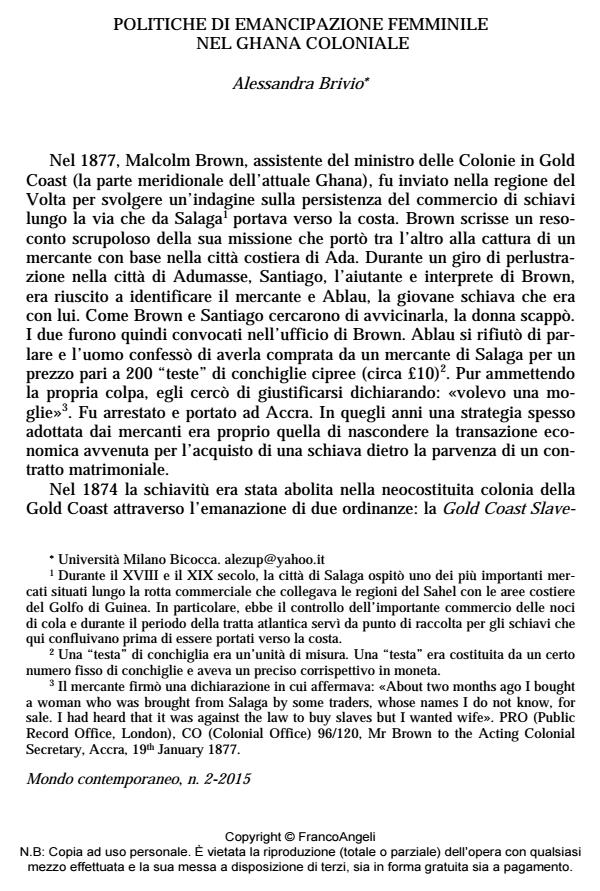Women Emancipation Policies in Colonial Ghana
Journal title MONDO CONTEMPORANEO
Author/s Alessandra Brivio
Publishing Year 2015 Issue 2015/2
Language Italian Pages 27 P. 15-41 File size 120 KB
DOI 10.3280/MON2015-002002
DOI is like a bar code for intellectual property: to have more infomation
click here
Below, you can see the article first page
If you want to buy this article in PDF format, you can do it, following the instructions to buy download credits

FrancoAngeli is member of Publishers International Linking Association, Inc (PILA), a not-for-profit association which run the CrossRef service enabling links to and from online scholarly content.
This article analyses some judicial cases discussed in Ghana’s colonial courts in the months immediately after the proclamation of the Gold Coast Slave-Dealing Abolition Ordinance and the Gold Coast Emancipation Ordinance (1874). The article highlights, in particular, the slave women’s attempts to improve their status and explains why these efforts often failed. The traditional political system on the one hand and colonial policy on the other both wished to maintain slave women’s state of dependence. An important aim of colonial policy, in fact, was to maintain the "traditional" family organisation, on which colonial domination was based. The logic of debt concealed within the repayment of dowries and the construction of the category "native marriage" forced women back into bondage even when they succeeded in changing their status.
Keywords: Ghana, slavery, pawnship, emancipation, marriage, gender
Alessandra Brivio, Politiche di emancipazione femminile nel Ghana coloniale in "MONDO CONTEMPORANEO" 2/2015, pp 15-41, DOI: 10.3280/MON2015-002002